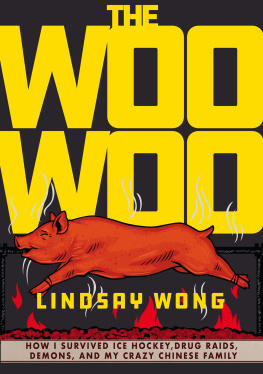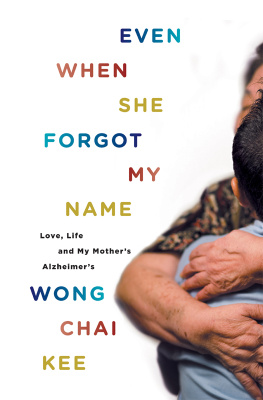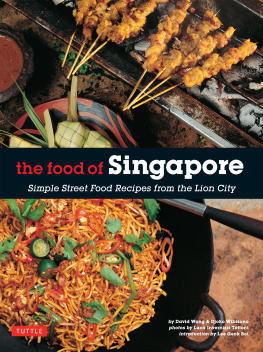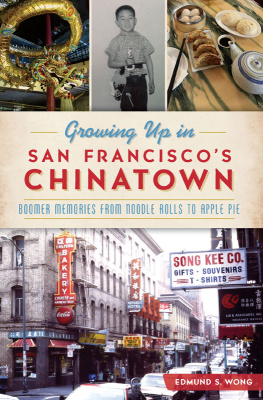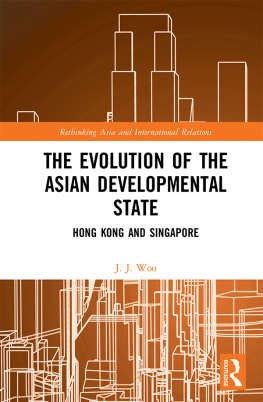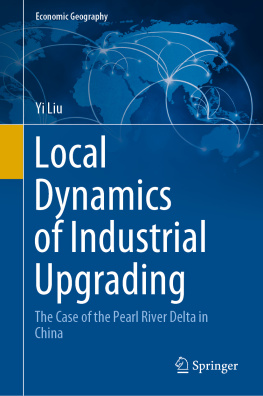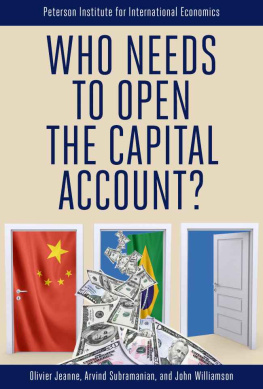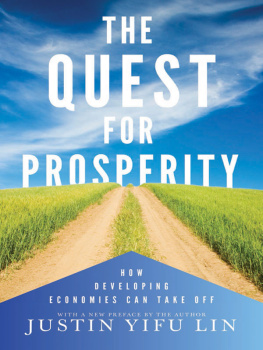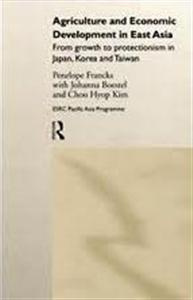BETTING
ON BIOTECH
INNOVATION AND
THE LIMITS OF ASIAS
DEVELOPMENTAL STATE
JOSEPH WONG
CORNELL UNIVERSITY PRESS
Ithaca and London
For Oliver
CONTENTS
Preface
Introduction: Betting on Biotech
1. From Mitigating Risk to Managing Uncertainty
2. Reorganizing the State
3. Organizing Bio-industry
4. Manufacturing Progress
5. Regulatory Uncertainty
Conclusion: Beyond the Developmental State
PREFACE
This book is about betting on commercial biotech development in three key Asian economies: South Korea, Taiwan, and Singapore. After more than two hundred interviews with informants in the field, over twenty research trips to the region, and countless hours in the library and in front of my computer, I believe the bets that have been made there on biotech have not worked out in the ways that many had earlier anticipated, myself included. When I began this project in 2002, I aimed simply to revisit the idea of the developmental state and to rejuvenate what had become a relatively stagnant debate about political economy among the former newly industrializing countries. I intended to examine how the developmental state had evolved and adapted in the era of knowledge-intensive, science-based industrialization. I expected that the model would have undergone some refinement and adjustment but that its evolution would reflect the next stage of the developmental state. What I did not anticipate, at least initially, was that the developmental state would have retreated altogether, that what I was researching was in actuality innovation beyond the developmental state.
In the course of writing this book, I have learned that sometimes things do not work out as you expect them to. Indeed, from the perspective of the economic planner, scientist, or bio-industrial stakeholder in Asia, what had once been a sense of considerable optimism at the beginning of the first decade of the 2000s about the prospects of commercial biotech has now become a dreaded feeling of impending failure. At a 2010 conference at the University of Oxford, a well-informed colleague from Taiwan put it to me bluntly: Biotechnology is one of Taiwans biggest industrial failures. I personally would not state it quite so starkly, yet I write in the concluding chapter that over the seven years during which I conducted research in Korea, Taiwan, and Singapore for this book, I saw the star that was supposed to be biotechnology dim quite considerably. Indeed, though billions of dollars have been spent, institutions redesigned, universities and labs reoriented, regulatory regimes implemented, and a considerable amount of political capital expended on succeeding in commercial biotech over the past two decades, Korea, Taiwan, and Singapore still have relatively little, in terms of significant commercial blockbusters, to show for their efforts. Commercial biotech may not be a failure per se, but it has certainly fallen well short of expectations on every measure. And it has severely testedand as I argue in this book, underminedthe viability of the Asian developmental state model.
The arguments developed in this book draw on the metaphor of betting. The postwar developmental state was quite proficient at betting; that is to say, it mitigated the risks of picking and making commercial winners in industrial upgrading. However, betting on commercial biotech innovation in the current era involves a much more profound kind of uncertainty, one in which technological, economic, and temporal uncertainty frustrates decision makers in both their ability and their willingness to make bets with any confidence. Put simply, this book examines how decision makers in what were once smart developmental states have made strategic and expensive bets in areas about which they know very little. And it is precisely this tremendous uncertainty that has hastened the end of the developmental state. Biotech represents an entirely new set of challenges, an entirely new kind of bet.
One caveat. The challenge of writing a book about a current and dy-namic topic such as biotech is that the researcher must somewhat artificially end the empirical analysis at some point. The field research for this book was completed in 2008, after which I spent my time writing the manuscript. In line with the broader arguments in the book about uncertainty, circumstances may have changed in Korea, Taiwan, and Singapore since 2008, and indeed, they may have changed quite significantly (though I am doubtful of that). And of course, all errors herein are mine and mine alone.
So many people to thank. At the outset, I extend my sincerest gratitude to the many people in Asia who have helped me over the past seven or eight years, from those who met with me, taught me about life sciences, and explained to me the intricacies of venture capital investing, to those who helped arrange meetings and interviews with informants and who suggested readings, to those who challenged me and debated with me. I am especially indebted to my colleagues and friends in Asia, including Dung-Sheng Chen, Yu-Han Chu, Yvette Flanigan, Michelle Hsieh, Yong-Duck Jung, Byung-Kook Kim, Zong-Rong Lee, Joel Lin, Chin-Tay Shih, David Silver, Joonghae Suh, Jenn-Hwan Wang, and Yu-Shan Wu, among many others. The scholars with whom I worked on Hong Kongs science and technology policiesSuzanne Berger, Douglas Fuller, David Hart, David Mowery, Louis Pauly, Adam Segal, Atsushi Sunami, Eric Thun, Ted Tschang, Poh Kam Wongwere critically important to the formation of the arguments I present in this book; the members of my research crew in SpainJorge Niosi, Martin Kenney, Martha Prevezer, and Andreas Pykawere equally important. The many opportunities to discuss my ideas, my arguments, and my field research over dinners and drinks in Wan Chai and Valencia are very much appreciated.
I also thank all those individuals I met with and interviewed in Korea, Taiwan, Singapore, Hong Kong, Malaysia, China, and the United States. Your candor and innovative visions are qualities I admire deeply. Your insights give this book its depth.
I have benefited enormously from being surrounded by people with sharp minds and good hearts. I am grateful for having such wonderful colleagues at the University of Toronto, including Emanuel Adler, Sylvia Bashevkin, Harald Bathelt, Steven Bernstein, Loren Brandt, Meric Gertler, Matthew Hoffmann, Jeffrey Kopstein, Neil Nevitte, James Orbinski, Louis Pauly, Ito Peng, Janice Stein, and David Wolfe, all of whom graciously lent me their time and expertise to discuss my work and to read over earlier drafts. I am also very fortunate to be part of an exceptional community of scholars and teachers at the University of Toronto, colleagues who have devoted their personal and professional lives to facilitating health technology innovation and transfer in the global south; friends such as Abdallah Daar, Jillian Kohler, Anita McGahan, Peter Singer, and Halla Thorsteinsdottir have had a profound impact on my work and approach to studying and dissecting the impact of health biotechnology in the developing world. Colleagues in the political science field more generally have also been extraordinarily generous with their expertise, including friends and colleagues Dan Breznitz, Tun-Jen Cheng, Greg Chin, Edward Friedman, Douglas Fuller, Peter Gourevitch, William Grimes, Stephan Haggard, William Hurst, Richard Iton, Wei-Chin Lee, Kun-Chin Lin, Gregory Noble, Shelley Rigger, Christine Rothmayr, Victor Shih, Mark Zachary Taylor, Yves Tiberghien, Steve Tsang, Robert Wade, Vincent Wang, and Meredith Jung-En Woo.
I think it is true that one often learns more from ones students than the other way around. I have been very fortunate to work with some outstanding undergraduate and graduate students. PhD students Sarah Eaton, Alanna Krolikowski, Su-Mei Ooi, Marie-eve Reny, and Stephen Trott provided excellent sounding boards against which I tried out (and subsequently discarded) many early ideas. My research assistantsNina Mansoori, Uyen Quach, and Andi Wilsonworked tirelessly alongside me collecting and analyzing data, searching government documents, editing, reading industry reports, and surfing the Internet for company data. And I learned a great deal from Mi-Ae Jung, my postdoctoral assistant from Seoul National Universitys engineering faculty.


